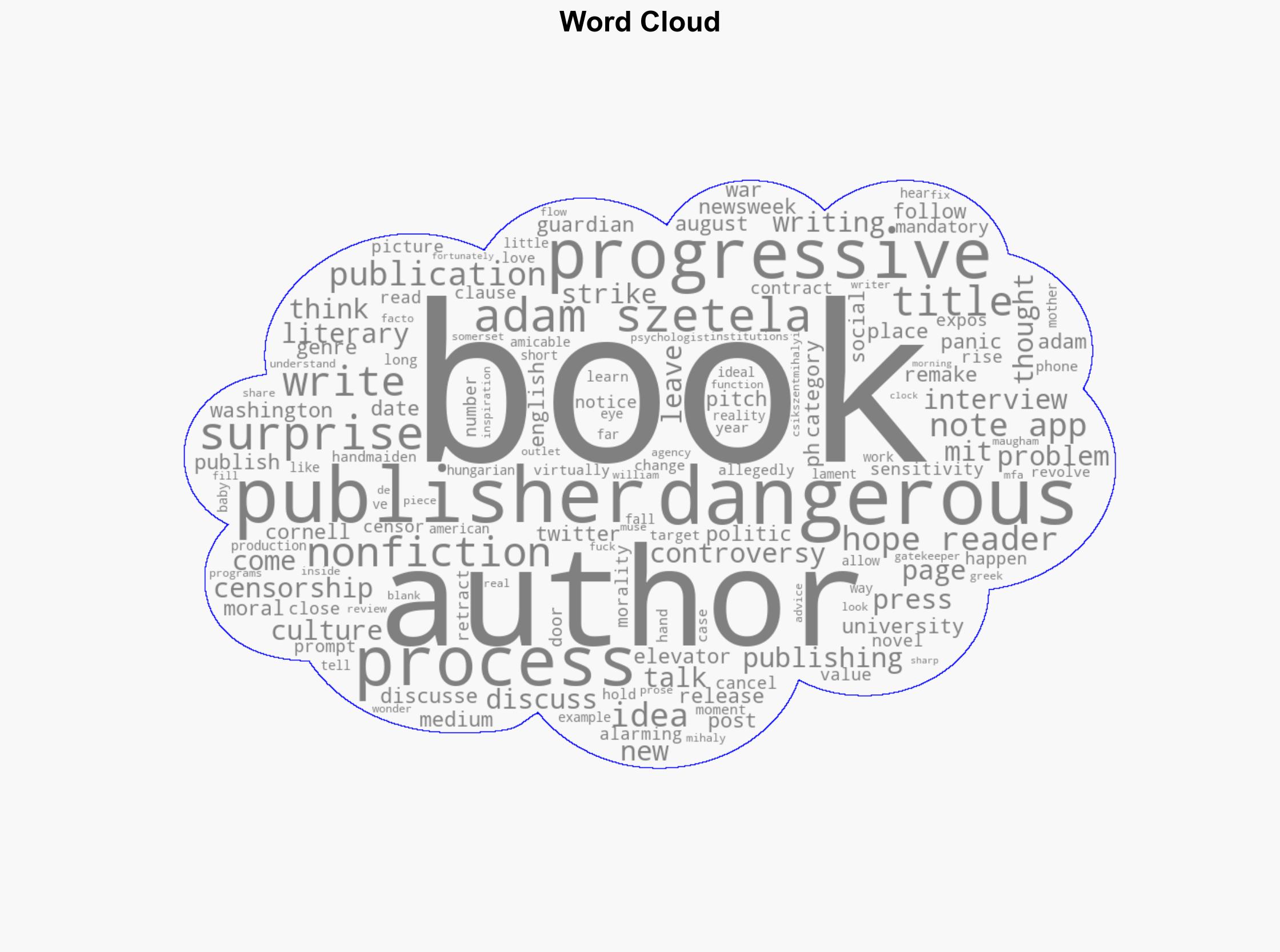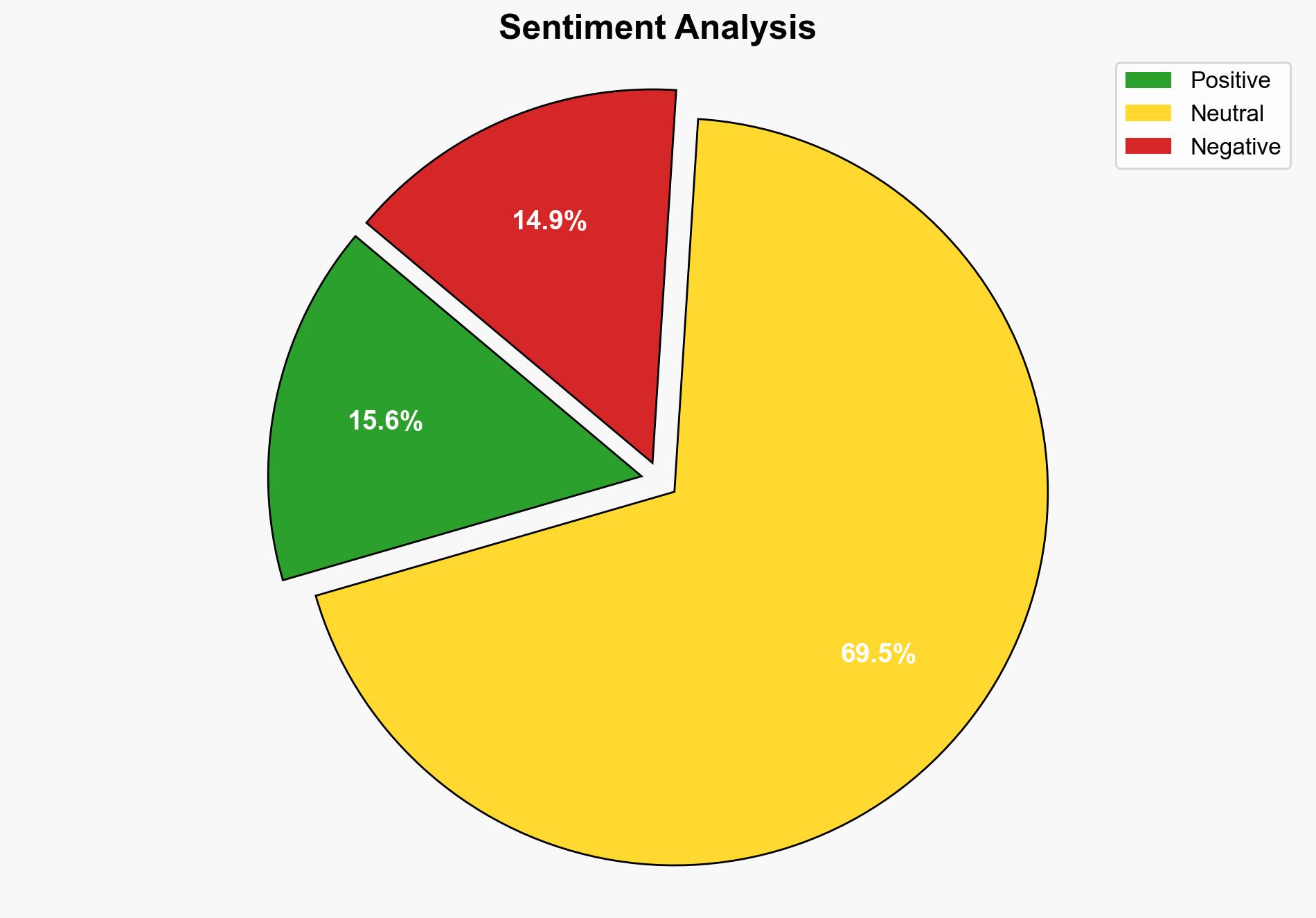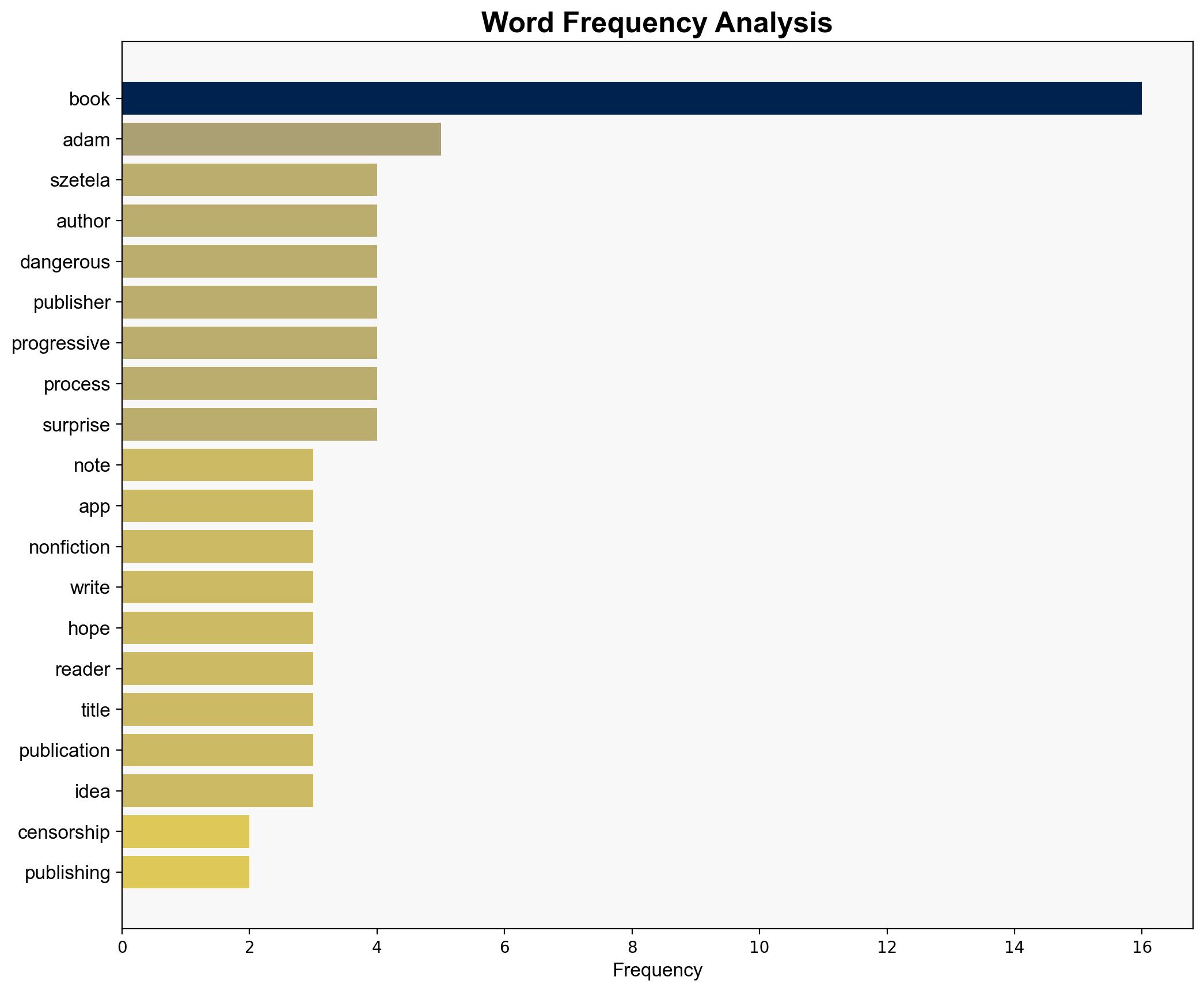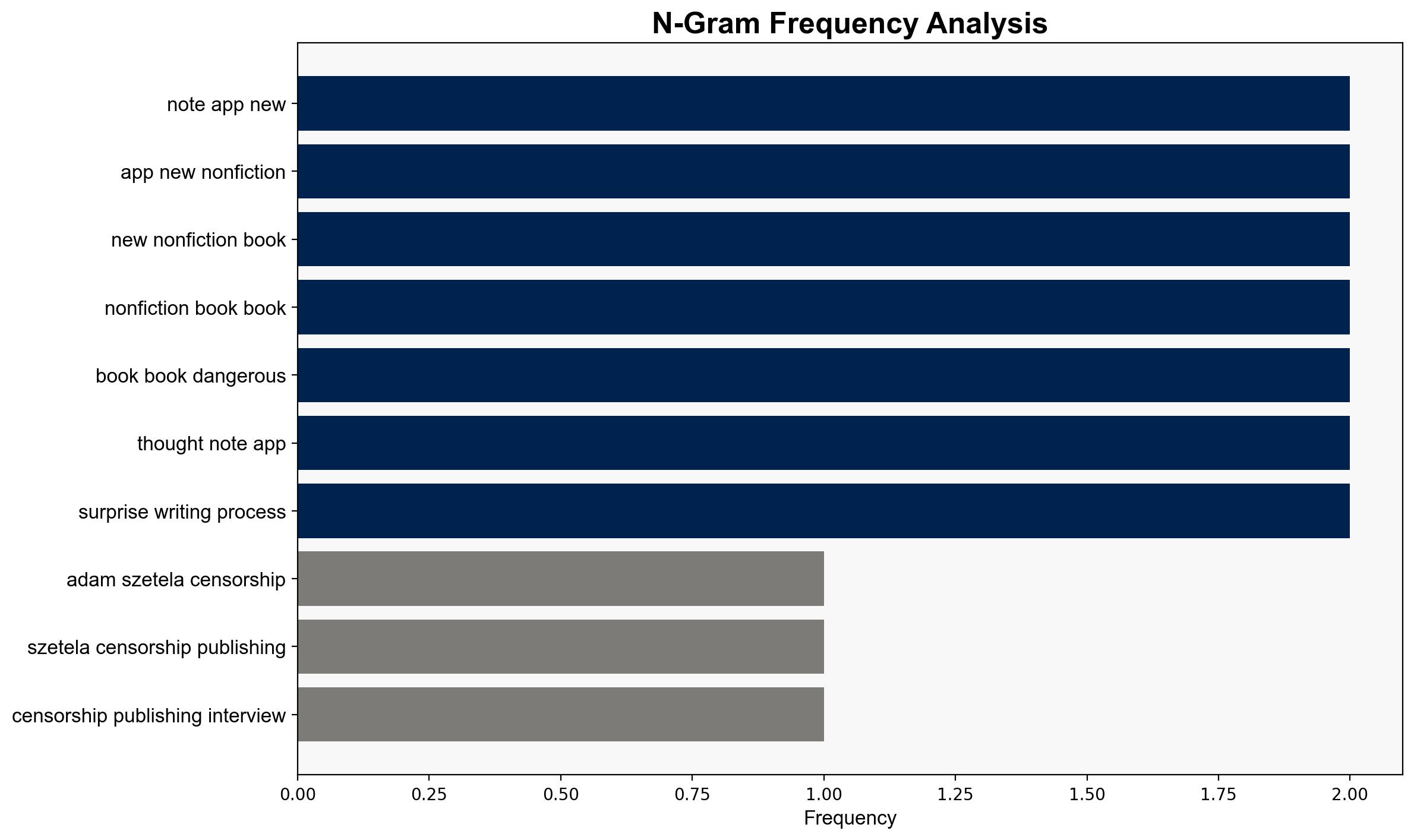Adam Szetela On Censorship in Publishing – Writersdigest.com
Published on: 2025-08-17
Intelligence Report: Adam Szetela On Censorship in Publishing – Writersdigest.com
1. BLUF (Bottom Line Up Front)
The analysis suggests that the most supported hypothesis is that censorship in publishing is increasingly influenced by progressive values, leading to the suppression of diverse viewpoints. Confidence level: Moderate. Recommended action: Encourage transparency and dialogue within publishing to address concerns of censorship and ideological bias.
2. Competing Hypotheses
Hypothesis 1: Censorship in publishing is primarily driven by progressive values, resulting in the suppression of non-conforming ideas and authors.
Hypothesis 2: The perceived censorship is a result of market dynamics and risk aversion by publishers, rather than ideological bias.
Using ACH 2.0, Hypothesis 1 is better supported by the evidence presented in the source text, which highlights controversies and cancellations linked to progressive targets. Hypothesis 2 lacks direct evidence in the text but remains plausible due to the inherent risk management practices in publishing.
3. Key Assumptions and Red Flags
Assumptions:
– Hypothesis 1 assumes a direct correlation between progressive values and censorship actions.
– Hypothesis 2 assumes that economic considerations are the primary drivers of publishing decisions.
Red Flags:
– Lack of quantitative data on the frequency and nature of censorship incidents.
– Potential bias in the source, as the interviewee may have personal motivations influencing their perspective.
4. Implications and Strategic Risks
The increasing perception of censorship could lead to a chilling effect on free expression in literature, potentially stifling innovation and diversity of thought. This may escalate into broader cultural conflicts, affecting public trust in publishing institutions. Economically, publishers may face backlash or boycotts from both sides of the ideological spectrum.
5. Recommendations and Outlook
- Encourage publishers to adopt clear guidelines and transparency in decision-making processes to mitigate accusations of bias.
- Facilitate open forums for authors and publishers to discuss censorship concerns and explore solutions collaboratively.
- Scenario Projections:
- Best Case: Increased transparency leads to a more balanced and open publishing environment.
- Worst Case: Escalation of cultural conflicts results in significant economic and reputational damage to publishers.
- Most Likely: Gradual adjustments in publishing practices with ongoing debates about censorship and bias.
6. Key Individuals and Entities
Adam Szetela, MIT Press
7. Thematic Tags
censorship, publishing industry, ideological bias, cultural conflict





